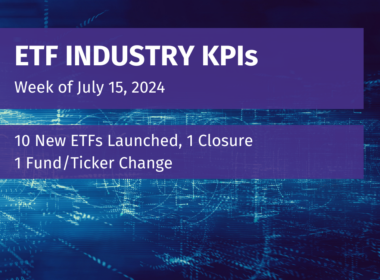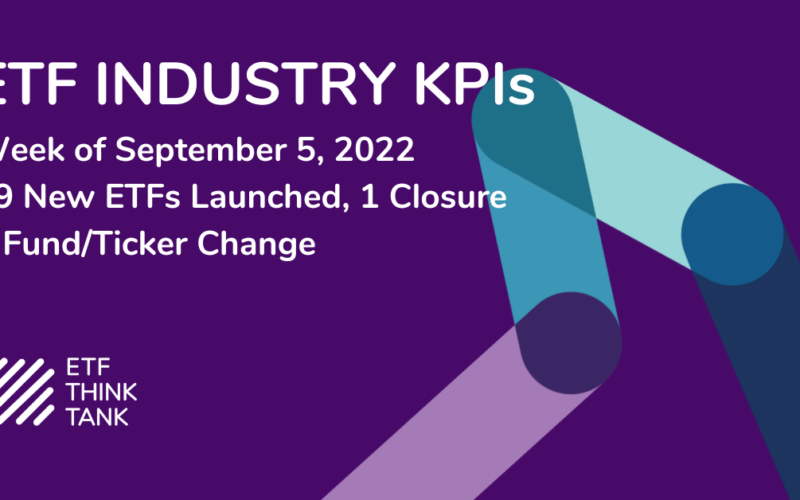ESG investing has gone from a booming theme to the scourge of investors everywhere. Backlash around its ability to outperform and confusion surrounding what qualifies a stock as ESG has turned a lot of investors off to the idea altogether. Mark Neuman, the Founder and CIO of Constrained Capital, has created an index that targets those names excluded from the ESG indexes which attempts to outperform the market based on the reverse ESG effect. He joins the ETF Think Tank to discuss the problems and future of ESG.
Neuman views ESG stocks as those that are under specific financial constraints. His research found that stocks that were under these constraints tended to underperform. His conclusion was that virtue comes at a price and ESG comes at the expense of lower returns. As a result, he began to identify non-ESG stocks with the idea that if ESG underperformed, the opposite could outperform. He started with the traditional sin stocks. Fossil fuel and nuclear energy were identified later. Eventually, his company’s ESG Orphans Index was born.
One of the problems with ESG is that stocks are getting left out for non-economic reasons and that potentially leaves alpha on the table. Another big problem is that the ESG data is all different. There are upwards of 20 different rating agencies and among them you could find massive inconsistencies. The exclusions, however, were very consistent.
The biggest issue is defining what is ESG and what isn’t. What are we judging ESG on? Is it business practices, products or something else? Plus, the environmental, governance, and social measurements and qualifications are completely different. Should they be combined or should issuers be looking at individual E, S and G products? ExxonMobil, for example, divested itself of some assets, which scored well on ESG measures, but its energy output has not changed. Tesla’s another example of a company that scores well on the environmental side of the equation, but poorly on governance. Should that be considered an ESG stock or not?
Neuman says that ESG needs to be defined much better, but who defines it? The index providers do a lot of the research today, but ESG has taken a bad turn because it is being used to push the preferences of certain people, not necessarily the investors. Ultimately, ESG investing has a better chance of success if it’s much more targeted and geared towards the client. Some indices and funds have gone so broad-based that they are missing out on a lot of the ESG advantage. ESG overall is a little misleading, but it should come down to what the client wants. Investors need to understand what they own and why.
Other key takeaways:
- Companies have gotten better at gamifying the ESG system. They are getting better at understanding how to answer the due diligence questions in order to look better. It is another reason why advisors and investors need to do their own research and become more targeted.
- Many advisors feel that even if there is not great outperformance potential, it’s a great opportunity to engage with clients.
- The view on ESG has forever changed because of what’s happened with Russia. Now we are focusing on what we have done to address ESG concerns.
- There is likely more political influence over who and how ESG gets defined.
Disclosure
All investments involve risk, including possible loss of principal.
The material provided here is for informational purposes only and should not be considered an individualized recommendation or personalized investment advice. The investment strategies mentioned here may not be suitable for everyone. Each investor needs to review an investment strategy for his or her own particular situation before making any investment decision.
All expressions of opinion are subject to change without notice in reaction to shifting market conditions. Data contained herein from third party providers is obtained from what are considered reliable sources. However, its accuracy, completeness or reliability cannot be guaranteed.
Examples provided are for illustrative purposes only and not intended to be reflective of results you can expect to achieve.
The value of investments and the income from them can go down as well as up and investors may not get back the amounts originally invested, and can be affected by changes in interest rates, in exchange rates, general market conditions, political, social and economic developments and other variable factors. Investment involves risks including but not limited to, possible delays in payments and loss of income or capital. Neither Toroso nor any of its affiliates guarantees any rate of return or the return of capital invested. This commentary material is available for informational purposes only and nothing herein constitutes an offer to sell or a solicitation of an offer to buy any security and nothing herein should be construed as such. All investment strategies and investments involve risk of loss, including the possible loss of all amounts invested, and nothing herein should be construed as a guarantee of any specific outcome or profit. While we have gathered the information presented herein from sources that we believe to be reliable, we cannot guarantee the accuracy or completeness of the information presented and the information presented should not be relied upon as such. Any opinions expressed herein are our opinions and are current only as of the date of distribution, and are subject to change without notice. We disclaim any obligation to provide revised opinions in the event of changed circumstances.
The information in this material is confidential and proprietary and may not be used other than by the intended user. Neither Toroso or its affiliates or any of their officers or employees of Toroso accepts any liability whatsoever for any loss arising from any use of this material or its contents. This material may not be reproduced, distributed or published without prior written permission from Toroso. Distribution of this material may be restricted in certain jurisdictions. Any persons coming into possession of this material should seek advice for details of and observe such restrictions (if any).












